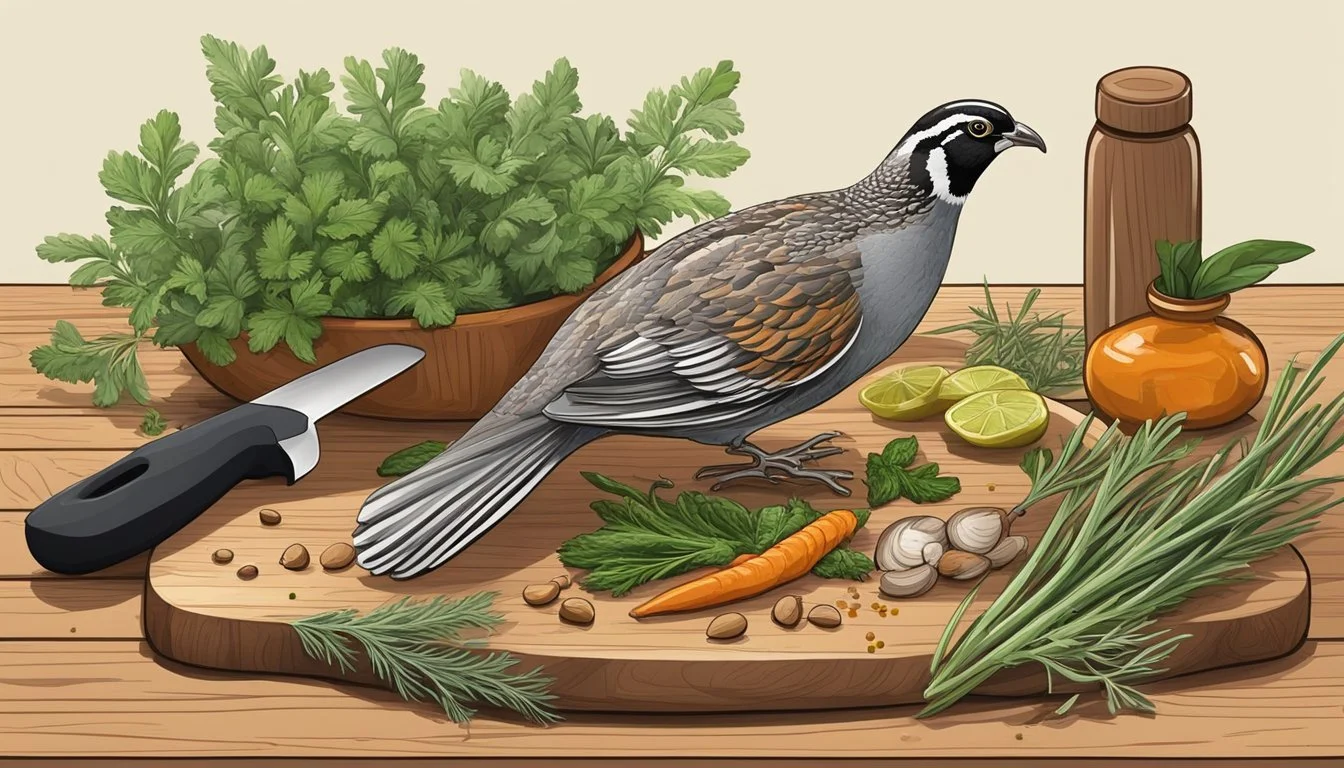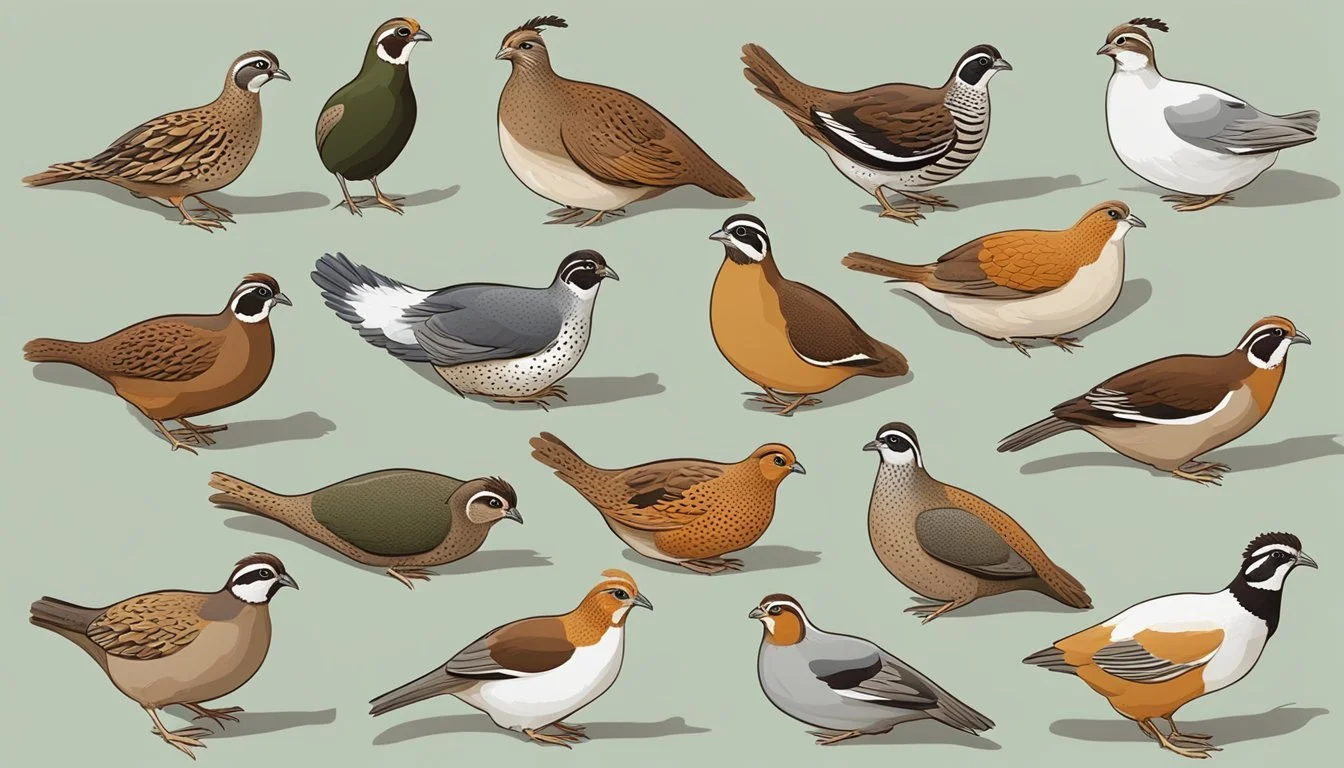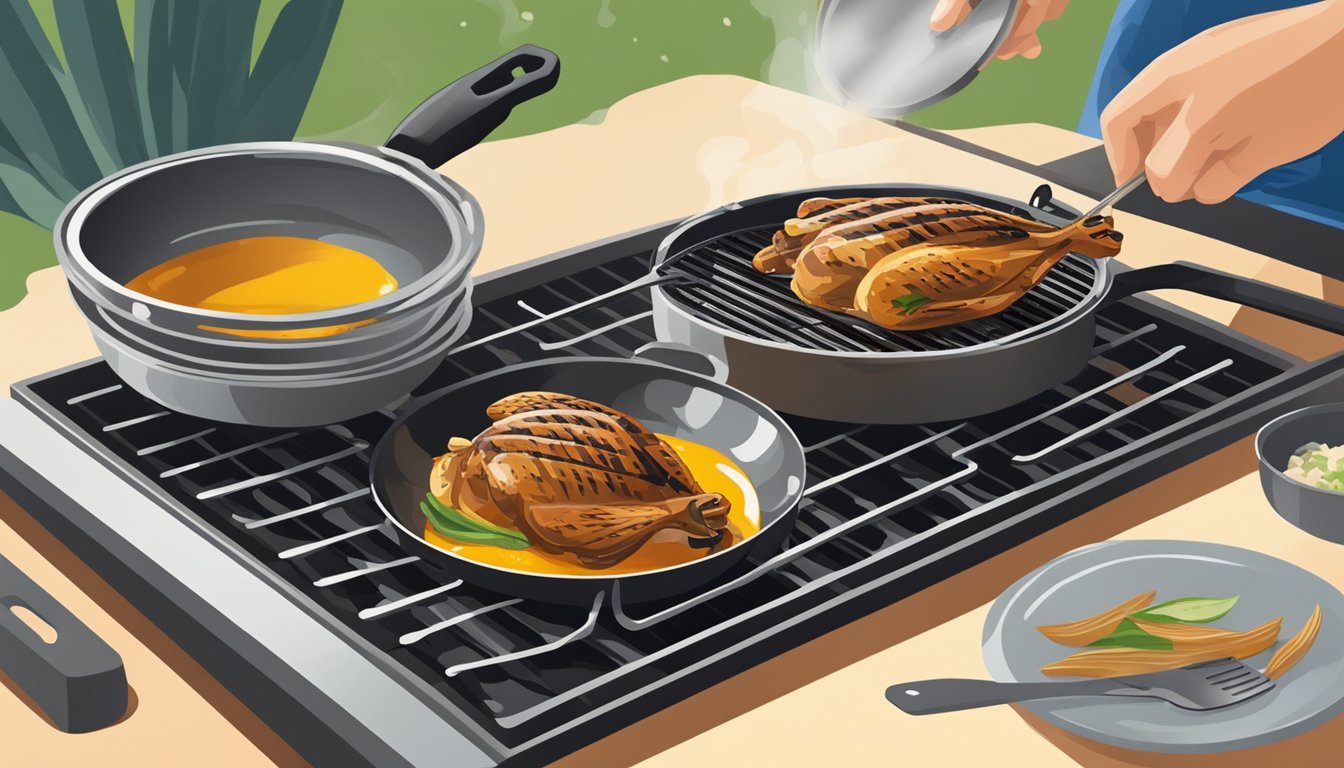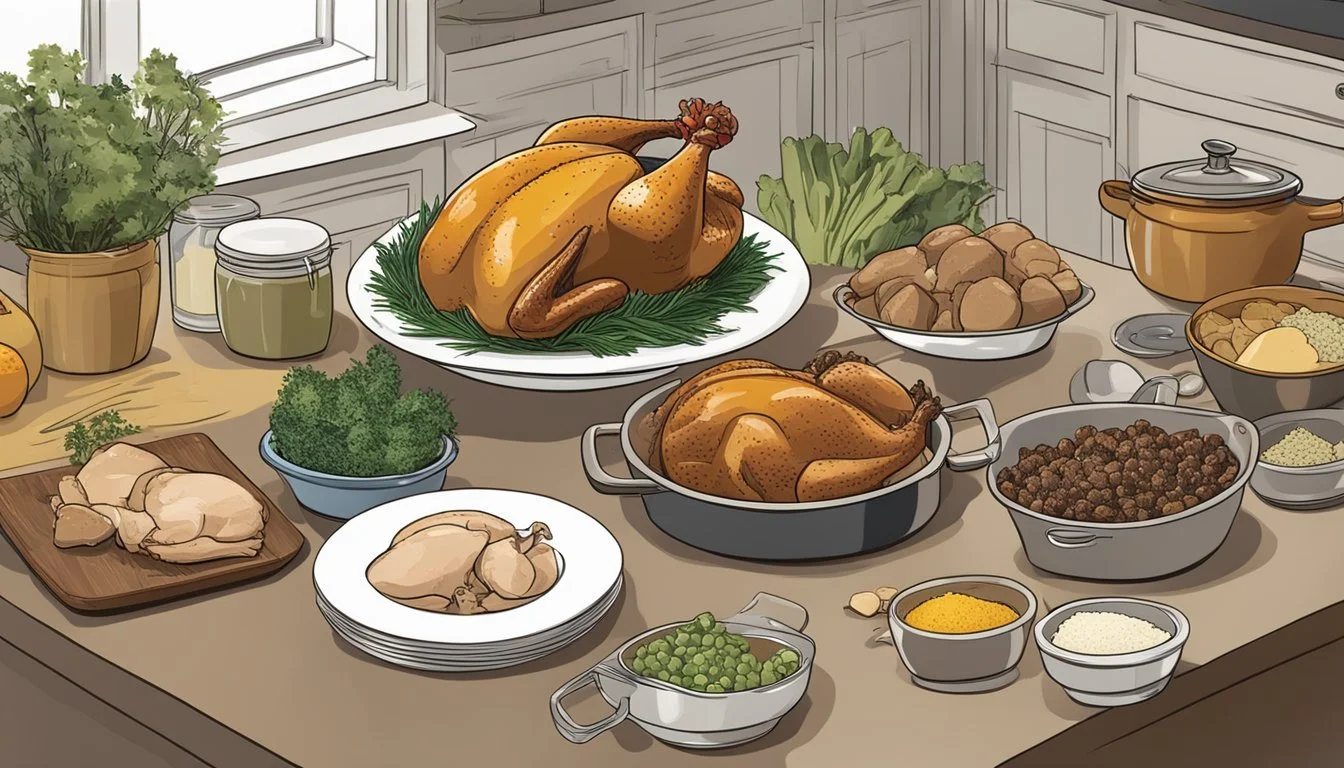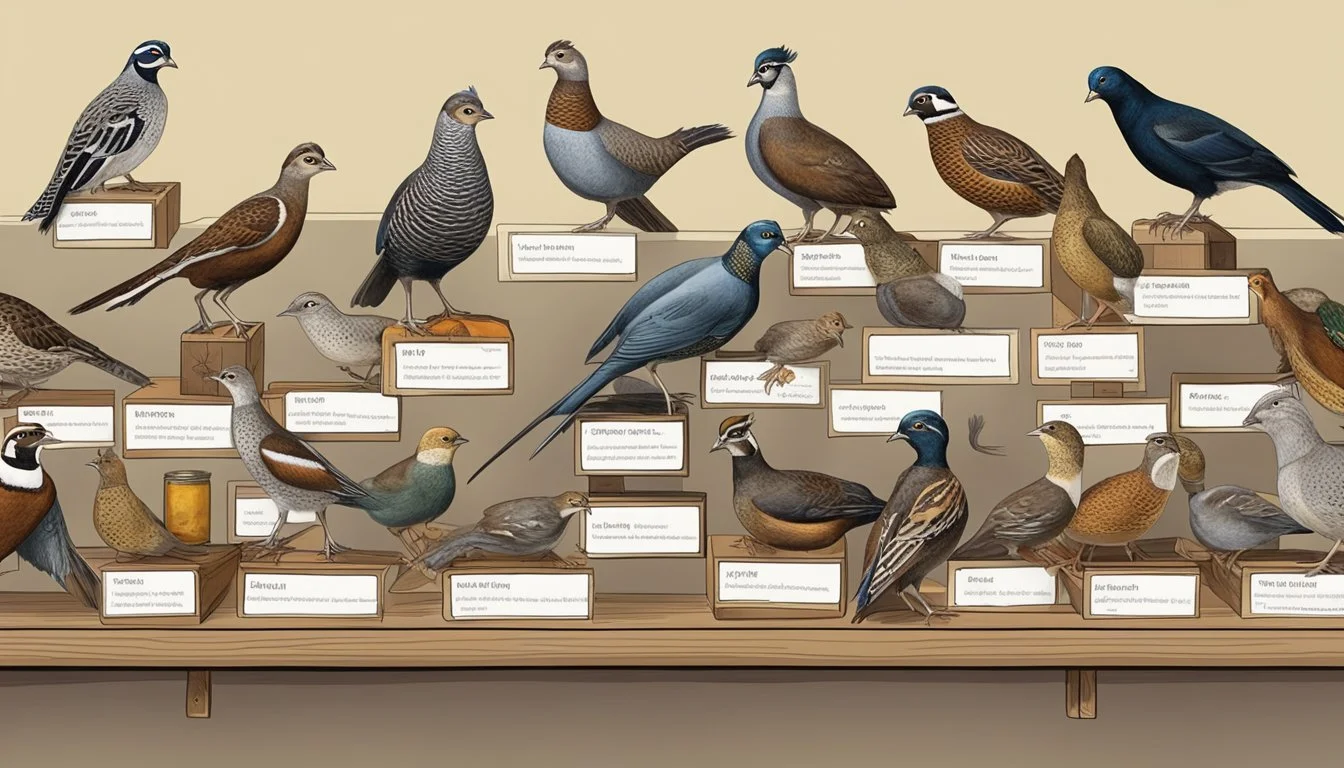Quail Substitutes
Best Alternatives for Cooking and Baking
Finding the perfect substitute for quail can enhance your culinary experience without compromising on flavor or texture. One excellent alternative is squab, known for its rich, gamey taste and succulent texture. Squab provides a similar experience to quail, whether roasted, grilled, or braised. It's a fantastic option for those looking to add a touch of elegance to their dishes.
For those seeking a plant-based option, tofu stands out as a versatile substitute. Made from soybeans, tofu’s mild flavor absorbs the seasonings and sauces of your dish, making it a flexible alternative. Its texture aligns closely with quail, making it a suitable option for various recipes without sacrificing the integrity of the meal.
When considering quail substitutes, factors such as nutritional value, availability, and cost come into play. While tofu is a cost-effective and widely available option, squab, though more expensive, offers a closer match in taste and elegance. Each substitute has its unique benefits, ensuring that your culinary creations remain flavorful and satisfying.
Understanding Quail and Its Culinary Uses
Quail is a small game bird with tender, delicate meat that is prized in various cuisines. This section will explore its presence in global dishes, its nutritional benefits, and preferred cooking methods.
Quail in Global Cuisines
Quail is enjoyed around the world for its unique flavor profile and versatility. In French cuisine, quail is often roasted and served with rich sauces. In Japanese cuisine, grilled quail, known as "yakitori," is a popular street food delicacy. In the Middle East, quail is frequently marinated with spices and grilled, often accompanied by rice and vegetables. This bird’s broad culinary appeal is a testament to its adaptability and the distinctive gamey taste it brings to dishes.
Nutritional Profile of Quail
Quail offers a substantial nutritional punch despite its small size. It is rich in protein, providing essential amino acids that are important for muscle repair and growth. Quail also contains significant amounts of iron, vitamin B6, zinc, and niacin, which support various bodily functions, including immune health and metabolism. Additionally, quail meat has a lower fat content compared to other poultry, making it a leaner option for health-conscious consumers.
Common Cooking Methods for Quail
There are several methods to cook quail to perfection, each bringing out different aspects of its delicate flavor and tender texture. Roasting is a prevalent method, often enhanced with herbs and spices for added depth. Grilling gives quail a smoky flavor and crisp texture, making it ideal for quick meals. Sautéing in a pan with garlic, onions, and wine can help retain moisture and flavor. Regardless of the method, it is crucial to cook quail to an internal temperature of 165°F (74°C) to ensure safety.
By understanding these aspects of quail, cooks can better appreciate and utilize this versatile game bird in their culinary creations.
Quail Alternatives for Dietary Restrictions and Preferences
Finding suitable substitutes for quail can cater to various dietary restrictions and preferences. Both plant-based options and different types of poultry and game birds offer viable alternatives, while specific ingredients can mimic quail's texture and flavor.
Plant-Based Substitutes
For those following a vegan diet, tofu is a versatile option. Made from soybeans, tofu can absorb flavors well and provides a similar texture to quail meat. It is also low in fat and high in protein, making it a nutritious choice.
Mushrooms are another excellent substitute. Varieties like portobello or shiitake can replicate the texture and umami flavor of quail. Mushrooms are also rich in antioxidants, fiber, and minerals such as selenium and zinc.
Chickpeas and lentils can also replace quail in various dishes. They offer high protein content, essential vitamins, and minerals like iron. These legumes can be seasoned to enhance their flavor and are suitable for different cooking methods.
Poultry and Game Bird Substitutes
Squab is a savory alternative to quail. The meat of young pigeons is tender and flavorful, with a rich, gamey taste. Squab can be cooked in similar ways to quail, such as roasting or grilling.
Pheasant and partridge are other game birds that can replace quail. Both birds offer lean meat with a distinct gamey flavor. They are rich in protein and essential nutrients, complementing a balanced diet.
Cornish game hen and chicken are accessible and versatile substitutes. These birds offer a mild flavor and can be cooked in various methods, from roasting to grilling. They provide a good source of protein, vitamins, and minerals.
Ingredients for Texture and Flavor
To mimic the texture of quail, seitan is a good choice. Made from wheat gluten, seitan has a chewy texture and can be flavored to resemble quail meat. It is high in protein and low in fat.
Nuts and seeds can be used to add both texture and flavor. Chopped nuts like almonds or walnuts can provide a crunchy element, while seeds like sunflower or pumpkin can be used in stuffing or coatings for plant-based substitutes.
Grains such as quinoa or farro can also enhance the dish. Grains offer a slightly chewy texture and are nutritionally rich, providing fiber, vitamins, and minerals. They can complement both plant-based and poultry substitutes in various recipes.
Cooking Techniques with Quail Substitutes
Exploring how to use substitutes for quail in various cooking methods can ensure delicious results. Key techniques include baking, roasting, frying, grilling, and preparing meat alternatives like tofu.
Baking and Roasting
When baking or roasting quail substitutes, aim to replicate the moisture and flavor profile of quail. Chicken and turkey are excellent choices, providing similar texture and taste.
Preheat the oven to 375°F (190°C). Season the poultry with salt, pepper, garlic, and herbs like rosemary and thyme. Add a splash of lemon juice for tanginess. Place the meat on a baking tray and roast until it reaches an internal temperature of 165°F (74°C), usually 25-30 minutes for chicken breasts.
For tofu, marinate in soy sauce, garlic, and herbs for 30 minutes in the refrigerator. Bake at 350°F (175°C) for 20-25 minutes, turning once to ensure even cooking.
Frying and Grilling
Frying and grilling quail substitutes can achieve crispy textures and bold flavors. Chicken thighs, drumsticks, and tofu are suitable options.
For frying, dredge the meat or tofu in seasoned flour. Heat oil in a skillet over medium-high heat. Fry the pieces until golden brown, about 5-7 minutes per side for chicken, and 3-5 minutes for tofu. Drain excess oil on paper towels.
Grill by preheating to medium-high heat. Brush the substitutes with oil and season as desired. For chicken, grill for 6-8 minutes per side or until the internal temperature reaches 165°F (74°C). Tofu can be grilled for 3-4 minutes per side, ensuring it is well-browned and has attractive grill marks.
Preparation of Meat Alternatives
Tofu and seitan are versatile meat alternatives. Proper preparation is key to mimicking quail's delicate texture and rich flavor.
Start by pressing tofu to remove excess moisture. Marinating tofu enhances flavor; use a mix of soy sauce, rice vinegar, garlic, and herbs. Let it sit in the refrigerator for 30 minutes to absorb flavors.
For seitan, slice finely and marinate similarly. Stir-fry seitan in a hot pan with vegetables for a quick and flavorful dish. Tofu and seitan can be garnished with fresh herbs, a squeeze of lemon, or a sprinkle of garlic powder to enhance the taste.
Common Substitutions in Recipes Featuring Quail
Quail can be substituted with a variety of ingredients depending on the type of dish and dietary requirements. Some options focus on maintaining the texture and flavor, while others cater to specific dietary needs or offer innovative alternatives.
Substitutes in Traditional Dishes
When looking for substitutes in recipes featuring quail, squab and poultry are popular choices. Squab, which is the meat of young pigeons, has a rich, gamey taste and succulent texture, making it a suitable replacement. It can be used in roasted, grilled, or braised dishes.
For those who prefer poultry, chicken and Cornish game hen are practical alternatives. They can be used in traditional quail recipes like stews or roasts, though adjustments in cooking time may be necessary to ensure tenderness and flavor.
Modifying Recipes for Dietary Needs
For vegan or vegetarian diets, tofu serves as an excellent quail substitute. It has a mild flavor and a texture that can absorb the flavors of marinades and spices, making it versatile for a range of dishes.
Chickpeas and aquafaba (the liquid from cooked chickpeas) can be used to recreate the texture and culinary versatility of quail eggs in recipes such as frittatas or omelets.
Yogurt can replace buttermilk in marinades, adding moisture without animal products. For those seeking a substitute for quail eggs in baking, chia seeds soaked in water or ground flaxseed can provide the necessary binding properties.
Innovative Substitutes to Experiment With
For a creative twist, consider using mushrooms as a quail substitute in gourmet recipes. Varieties like portobello or shiitake offer a meaty texture that can absorb flavors well, making them suitable for grilling or sautéing.
Tempeh, another soybean-based product, can be marinated and grilled to mimic the texture of quail. It brings a nutty flavor that adds depth to dishes.
Additionally, jackfruit can be an unexpected yet delightful substitute due to its fibrous texture, which works well in slow-cooked recipes. Adding spices like paprika or using a yogurt-based marinade can enhance the flavor profile.
These substitutes not only maintain the integrity of the dish but also allow for creativity in the kitchen.
Selecting and Storing Substitutes for Quail
When selecting substitutes for quail, consider the availability of ingredients and methods to ensure they maintain their quality and flavor. Additionally, proper storage practices are essential for optimizing shelf life and nutritional value.
Purchasing Guidelines
When purchasing substitutes for quail at a grocery store or specialty market, consider both flavor profile and texture. Cornish game hens and squab (young pigeons) offer rich, gamey tastes similar to quail. Chicken breasts provide a leaner alternative but may lack the distinct quail flavor. Tofu, as a vegan substitute, also offers a texture that works well in various dishes.
Look for fresh, high-quality meat, which is often identified by its color and lack of off-putting odor. Specialty stores may offer a more diverse selection influenced by various cuisines, increasing your options.
Shelf Life and Preservation
Proper storage is crucial for extending the shelf life of quail substitutes. Cornish game hens and squab should be kept in the refrigerator at an internal temperature of 32°F to 40°F (0°C to 4°C). For longer preservation, freezing these substitutes can extend their shelf life by several months. Chicken should also be stored similarly, ensuring it’s refrigerated promptly and used within two days or frozen for longer storage.
Tofu has a shorter shelf life, needing refrigeration and attention to expiration dates. If using quail egg substitutes like chicken eggs, store them in the refrigerator where they can last up to three weeks.
Maintaining Quality and Flavor
To maintain the quality and flavor of substitutes like Cornish game hens and squab, proper cooking techniques are necessary. These meats should be cooked to an internal temperature of 165°F (74°C) to ensure safety and optimal taste. Using herbs, spices, and marinades can enrich the dishes and bring out flavors similar to quail.
For a leaner option, chicken breasts work well in many recipes with minimal calorie addition. Tofu, while versatile, should be pressed and marinated for better texture and flavor absorption. Handling and storing ingredients correctly will help retain their nutritional benefits, ensuring the substitutes are both delicious and healthy.


